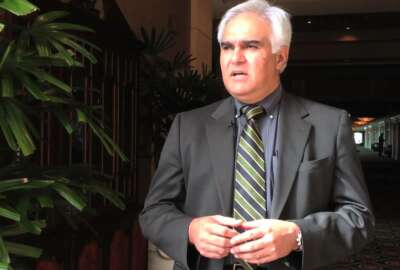

Senior Correspondent Mike Causey says if it's true that all politics is local, D.C. feds may get a major political assist from beyond-the-Beltway feds that could...
“All politics is local.”
—Rep. Thomas “Tip” O’Neill (D.Mass.), the former speaker of the House of Representatives.
If the above is true, various proposals to whack or eliminate retirement benefits for all federal and postal workers, as well as current and future retirees, are likely to hit a fatal speed bump later this year as House members, up for reelection next year, look at what the mind-boggling changes would mean to their home districts.
Although billed as a GOP plan — either from the White House or the House itself — nine Republicans (along with more than 100 House Democrats) have already disassociated themselves from plans to make feds pay more for their retirement in return for small lifetime pensions or annuities.
Among the proposals: a 6 percent increase in the amount working feds kick into the Federal Employees Retirement System, no more cost-of-living adjustments for FERS retirees, reduced COLA protection for current and future CSRS retirees and elimination of the so-called FERS annuity supplement for workers who retire before becoming eligible for Social Security. The latter is a punch in the gut for feds with some of the most stressful and dangerous jobs in the county: law enforcement officers, air traffic controllers and federal firefighters who have mandatory retirement ages well below age 62.
Several of the GOP Nine have cited moral and ethical reasons for opposing any federal retirement benefit cuts. As in it’s a breach of contract between Uncle Sam and people who signed up to serve the government, often at lower lifetime pay than they could get doing the same thing in the private sector. Morals and ethics are great. But the politicians also have to answer to a higher power: The people who vote for them (or not) every two years.
While Washington, D.C. is the Great Swamp filled with clock-watching, rule-making bureaucrats, the fact is that only about 14 of every 100 federal workers lives or votes in that area. The vast majority of feds — and most politically active retirees — are well beyond the Beltway. The federal payroll is essential to the D.C. area’s economy. That’s been a fact for many, many years.
The fact is that the mass of federal workers-voters and federal retirees-voters don’t live here. They live there. ‘There’ being where you, and most people, taxpayers, wage-earners live and work and vote. My poster child example is always Ogden, Utah. A thriving community about as far — morally, socially, politically, etc. — from D.C. as you can get. Yet the federal payroll in Ogden is a very, very, very, as-in-really-big deal. If you don’t work for the Air Force, the Internal Revenue Service or the Department of the Interior in Ogden, chances are you work for a firm or service that depends on those biweekly paychecks. And monthly annuity deposits.
One of the major employers in Dayton, Ohio, is the U.S. Air Force’s Wright-Patterson Air Force Base. Huntsville, Alabama is a mini-Washington, D.C. So are many places (congressional districts) in Oklahoma, North Carolina, South Carolina, Texas, Florida and of course California, that are also jam-packed with former feds for whom the economic loss of inflation-catchup COLAs could, over time, prove devastating.
In fact, try to find an area where the federal government isn’t a presence. It may be a VA center or hospital. It may be a federal prison in Colorado or Pennsylvania. Guess which state is the home of naval facilities in Jacksonville, Key West, Mayport, Orlando, Panama City and Pensacola, to name a few, that pump billions into the local economy. Economically hard-pressed West Virginia would be a lot worse off without the many federal installations installed in the Mountain State by the late Sen. Robert E. Byrd (D-W.Va.).
If you are an active-duty civil servant or in retirement, you have good reason to be scared. With one party controlling both Congress and the White House, lots of things should be easy. Like deflating the bureaucracy and its payroll. Until you look around.
Some members of Congress are in safe districts because the state legislatures — both Democratic and Republican — have created districts where instead of you deciding who to vote for, the politicians decide who can vote for them. Here’s an example. But there are lots of districts that are or will be up for grabs. Traditionally, the party that controls the White House tends to lose congressional seats in the first election after it took power.
While Congress is good at scaring federal workers and retirees, this is one of those times — and those issues — when it may not pay to poke the sleeping federal tiger and his/her merchant friends. It might be a time for lawmakers to consider yet another oldie but goodie:
“Be careful of what you want or you might get it.”
A Nile crocodile normally dives for only a few minutes, but will stay underwater for up to 30 minutes if threatened, and if they remain inactive they can hold their breath for up to two hours.
Source: Wikipedia
Copyright © 2025 Federal News Network. All rights reserved. This website is not intended for users located within the European Economic Area.
Mike Causey is senior correspondent for Federal News Network and writes his daily Federal Report column on federal employees’ pay, benefits and retirement.
Follow @mcauseyWFED

